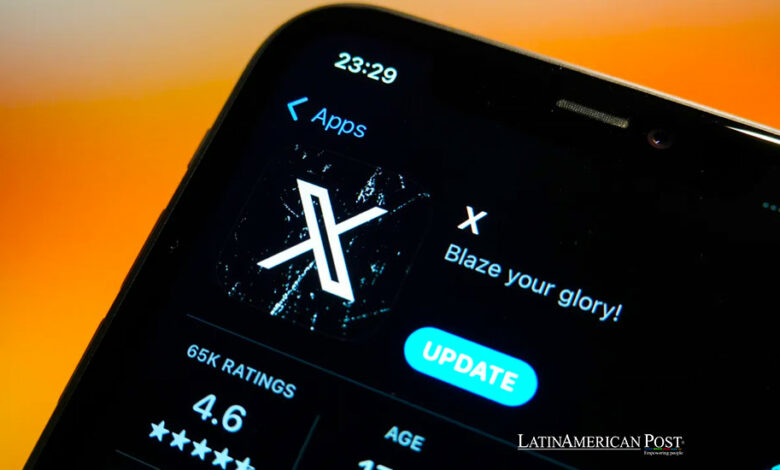X Social Media to Comply with Brazil’s Legal Terrain

Amid legal entanglements, X’s commitment to adhere to Brazilian Supreme Court rulings has become a focal point in a broader discourse on social media governance and free speech.
In the dynamic landscape of social media regulation, a new chapter unfolds in Brazil, featuring none other than tech magnate Elon Musk’s social media platform X. The company’s Brazilian outfit, in a recent communique, assured the nation’s highest judiciary of its intent to comply fully with the rulings laid down by the Supreme Court and the Superior Electoral Court.
X’s Compliance with Brazilian Court Orders
This assurance comes on the heels of a legal pivot in which X initially expressed constraints in influencing its U.S. headquarters’ compliance with Brazilian court directives. However, in a letter addressed to Supreme Court Justice Alexandre de Moraes and disclosed to the public, the stance shifted to unequivocal compliance.
Elon Musk, known for championing an unrestricted version of free speech, had previously taken an opposing position, questioning the constitutionality of the court-mandated account restrictions and suggesting Justice Moraes’ resignation. The response from the judiciary was swift, with Justice Moraes initiating an inquiry into Musk for potential obstruction of justice.
At the core of these proceedings is an investigation led by Moraes into so-called “digital militias.” These groups stand accused of disseminating fake news and hateful content during the tenure of Brazil’s former far-right President, Jair Bolsonaro, alongside allegations surrounding a supposed coup attempt by Bolsonaro himself.
The saga turns with X revealing a subpoena from the U.S. House of Representatives Judiciary Committee. The U.S. legislative body’s interest lies in Brazil’s Supreme Court content moderation orders. As X navigates these complex waters, its legal representatives maintain a communication channel with Justice Moraes, pledging transparency and ongoing updates from X Corp on the developments.
The social media giant’s legal entanglement is a microcosm of the more significant issues in Latin America’s digital sphere. Across the region, from the northern reaches of Mexico to the southern tip of Chile, governments are grappling with the delicate balance between regulation and free expression online.
Challenges in Brazil’s Digital Landscape
These questions are particularly pertinent in Brazil, a nation with a vibrant online community and a history marked by political volatility. The government’s efforts to police the digital realm are not just about curbing misinformation but also reflect a deeper struggle to preserve democratic integrity in the face of rapidly evolving technology.
X’s case indicates the new reality for social media companies operating in countries with intricate legal frameworks and robust judicial oversight. It underscores the challenges global tech firms face as they strive to harmonize their broad free speech policies with local laws that may call for more stringent control.
The unfolding scenario in Brazil has set a precedent for other nations in Latin America. As countries watch Musk’s enterprise navigate these legal waters, many contemplate their stances on digital governance. They ponder how they can ensure that social media platforms are not used as conduits for harmful propaganda or destabilizing forces.
However, X’s readiness to comply with Brazilian court orders continues the digital rights and responsibilities debate. It highlights the tension between international tech companies’ policies and national legal systems, a dynamic that raises profound questions about sovereignty, corporate power, and the future of public discourse.
The discussion surrounding X and Brazil’s judiciary also shines a light on the region’s battle against disinformation. Latin America, with its diverse political landscapes and historical susceptibilities to populist narratives, has become a battleground for truth in the age of social media.
Protecting Democratic Processes
While Brazil confronts the immediate issue of content moderation, the region faces the challenge of protecting democratic processes in the digital age. This challenge requires nuanced solutions that balance the need for open discourse with the imperative to shield societies from the divisive impacts of misinformation.
In an era where social media platforms have become arenas for geopolitical clashes and cultural debates, companies like X find themselves at the intersection of commerce, technology, and politics. Their policies and practices can influence national dialogues, shape public opinion, and, at times, even sway the outcomes of elections.
As Latin America continues to evolve its digital infrastructure, the experiences of countries like Brazil will inform policies across the continent. The outcomes will determine how nations can maintain the free flow of ideas while safeguarding their citizens against the hazards of a hyper-connected world.
Also read: Brazilian Court Denies X’s Request to Exempt Subsidiary from Legal Responsibility
X’s navigation through Brazil’s judicial mandates is more than a legal storyline. It reflects the ongoing global conversation about the role and responsibility of tech giants in our societies. The conversation will define freedom, responsibility, and regulation in the digital public square for years to come.
As the situation develops, the international community will be watching closely, aware that the resolutions reached in Brazil may resonate far beyond its borders, influencing the future trajectory of social media regulation across Latin America and potentially the world.





